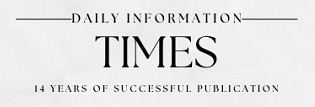ISLAMABAD. June 09: Finance Minister Ishaq Dar is presenting the federal budget before the parliament after it was approved by the cabinet earlier on Friday.
A draft of the federal budget with over Rs6 trillion deficit was prepared and presented in the cabinet on Friday for its approval.
It carries a proposal of imposing new taxes worth Rs700 billion. The total outlay of the budget is expected to be Rs14.5 trillion. The government employees are likely to receive a boost of 30% in their ad hoc relief allowances as well as a 20% hike in pensions.
It has also been suggested that the medical and conveyance allowance of government employees should be increased by 100%. The fiscal deficit target has been set at 7.7% of the GDP.
A revenue collection target of Rs 9.2 trillion has been estimated. The Federal Board of Revenue (FBR) will be assigned a target of generating revenue at Rs 2.8 trillion, 55% of which will be transferred to the provinces.
The federal government plans to spend a sum of Rs950 billion on development. An amount of Rs200 billion will be spent on launching new projects under the public-private partnership mode.
The government’s annual budget will need to satisfy the International Monetary Fund (IMF) to have any chance of securing the release of more bailout money, with the crisis-riven country due to hold elections by November.
The risk of default on sovereign debt is rising, with the economy creaking under twin deficits and record high inflation, which has further dented the popularity of Prime Minister Shehbaz Sharif’s coalition ahead of the vote.
PM Shehbaz’s government is hoping to persuade the IMF to unlock at least some of the $2.5 billion left in a $6.5 billion programme that Pakistan entered in 2019 and which expires at the end of this month.
“The focus of discussions over the FY24 budget is to balance the need to strengthen debt sustainability prospects while creating space to increase social spending,” Esther Perez Ruiz, the IMF’s resident representative for Pakistan, said on Thursday.
Pakistan missed almost all of its economic targets set in the last budget, most notably its growth target, which was initially set at 5%, revised down to 2% earlier this year. Growth is now projected to be just 0.29% for the fiscal year ending June 30.
Foreign exchange reserves have dipped below $4 billion, according to data released by the central bank on Thursday, enough to cover barely a month of imports.
The government has no fiscal space to introduce popular measures that will win it votes or a stimulus to spur flagging economic activity, with limited avenues for raising revenue in the short term and domestic and international debt obligations continuing to mount.




No comment